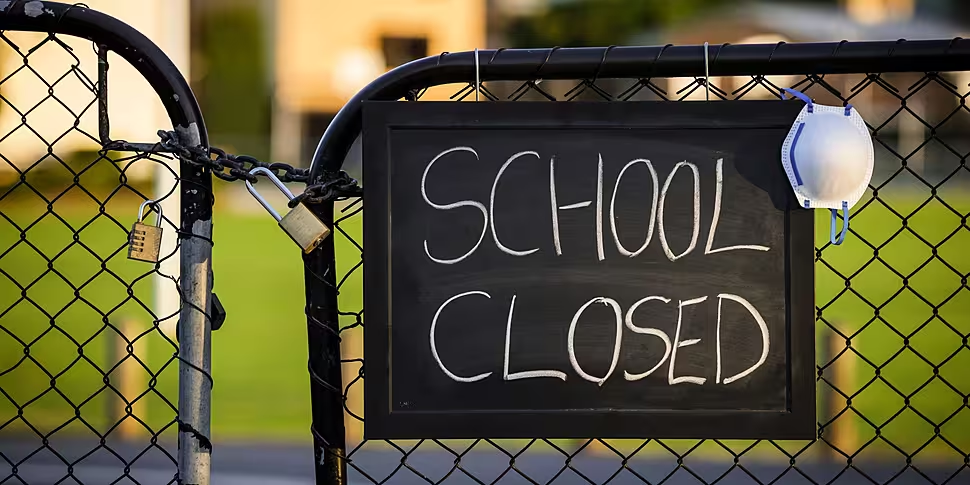School closures during lockdowns had a 'predominantly negative' impact on children's rights, the Ombudsman for Children's Office (OCO) has said.
Schools across the country were closed for extended periods during both 2020 and 2021.
During the first lockdown in 2020, schools closed in March and didn't reopen until after the summer holidays in September.
There was another extended closure from January 2021, with some students not returning to classrooms until April.
The OCO's CRIA report on the impact of school closures shows they had a "predominantly negative" effect on those children's rights in 2020 and 2021.
Their review specifically looked at the impact on children with mental health difficulties, homeless children, children in Direct Provision, children with disabilities, and Traveller and Roma children.
Dr Karen McCauley, Head of Policy the Ombudsman for Children’s Office, spoke to Newstalk Breakfast about the findings.
She explained: “What we found overall was that, despite the efforts that were made and the mitigation measures put in place when schools closed to support children with online learning, the impact on them was predominantly negative across the range of rights that we looked at.
“There was a predominantly negative effect on children's right to education - where that impact disproportionately impacted on children who were already experiencing education disadvantage, including on Traveller children, children experiencing homelessness, and in some cases children living in direct provision.”
Some of the issues included problems around access to adequate broadband and devices, as well as challenges for parents and families with supporting children’s participation in education.
Dr McCauley said the findings don't necessarily come as a surprise, but there are a few results worth thinking about.
She said: “This piece of work is a snapshot in time - it shows that school closures impacted negatively on children. It amplifies the absolutely central role that schools and professionals working in schools play in children’s life - but also in supporting their enjoyment of their rights.
“It’s not just their right to education - it’s their right to protection from harm, right to adequate nutrition, right to development, and so on.
“The questions we’re asking coming out of that… looking forward, is there more we can do as a State or society in supporting our schools in discharging their role in this regard? Do we need to look at diversifying the pathways for providing vital services to children?”
She noted that school closures impacted children's access to health services such as school-based hearing, vision and dental checks.
The report also notes that the school meals programme did not reach as many children during lockdown as it would have done otherwise, despite the steps taken to maintain the programme.
It also highlights that teachers and other professionals in schools play a big role in recognising and reporting significant child protection and welfare concerns.









